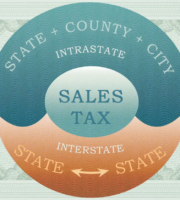A lot has changed over the past couple of years. With the pandemic increasingly further in the rearview mirror, no more talk of murder hornets, and the very public and uneasy change of federal administrations a thing of the past, states and their lawmakers have been busy working on new controversial laws that vary wildly state to state. Not the least of which is the legalization of recreational marijuana. A couple of years ago, Pew Research Center found that 68% of Americans regularly thought about it. We’d wager that number has seen a boom with fewer domestic distractions hogging all the spotlight on news networks.
A couple of years ago, not even a dozen states legalized marijuana use for recreational purposes. That number is now a staggering 20, with Connecticut, New Mexico, New York, Virginia, Arizona, Montana, New Jersey, Vermont, Illinois, Michigan, California, Maine, Massachusetts, Nevada, Alaska, Oregon, Colorado and Washington composing the fully legal group. Many other states have decriminalized the use but haven’t openly lifted the sale to 18 or 21-year-olds from recognized dispensaries. Assuming those states follow the same models the additional 21 have, it won’t be more than a couple of years until the vast majority of states have completely legalized for anybody over a certain age.
There are still states that hang on to the exceptionally conservative values that have ruled their regions and territories for centuries. Alabama, Idaho, South Carolina, South Dakota, Tennessee, and Wyoming have made little to no effort toward legalizing. In some cases, this even includes medicinal substances. Hard to believe, right? With all the studies that prove the exponentially increasing number of ways we can use cannabis for medicine, it’s still untouchable in those states. Their loss.
The Marijuana Opportunity Reinvestment and Expungement Act is currently being pushed through congress, and it passed through the House in April. This bill decriminalizes marijuana. Specifically, it removes marijuana from the list of scheduled substances under the Controlled Substances Act and eliminates criminal penalties for an individual who manufactures, distributes, or possesses marijuana. So whether those conservative states like it or not, change is coming.
Additionally, the bill also makes other changes, including the following:
- replaces statutory references to marijuana and marihuana with cannabis,
- requires the Bureau of Labor Statistics to publish demographic data on cannabis business owners and employees regularly,
- establishes a trust fund to support various programs and services for individuals and businesses in communities impacted by the war on drugs,
- imposes an excise tax on cannabis products produced in or imported into the United States and an occupational tax on cannabis production facilities and export warehouses,
- makes Small Business Administration loans and services available to entities that are cannabis-related legitimate businesses or service providers,
- prohibits the denial of federal public benefits to a person based on certain cannabis-related conduct or convictions,
- prohibits the denial of benefits and protections under immigration laws based on a cannabis-related event (e.g., conduct or a conviction),
- establishes a process to expunge convictions and conduct sentencing review hearings related to federal cannabis offenses,
- directs the Government Accountability Office to study the societal impact of state legalization of recreational cannabis,
- directs the National Highway Traffic Safety Administration to study methods for determining whether a driver is impaired by marijuana,
- directs the National Institute for Occupational Safety and Health to study the impact of state legalization of recreational cannabis on the workplace, and
- Directs the Department of Education to study the impact of state legalization of recreational cannabis on schools and school-aged children.
Much of the population is for the legalization of cannabis. We know its benefits when it comes to tax infusion and raising the dollar’s value. We know the benefits cannabis has when it comes to medical use. We know the benefits of avoiding other recreational drugs people tend to abuse. We know that there will be benefits with controlled, public growing sectors rather than buying from back alley basement dwellers or drug dealers working down the line from a cartel. A lot has changed in two years. Can you imagine what it will be like in two more?
To learn more about the cannabis industry and what’s going on, check out Green Blazer.







